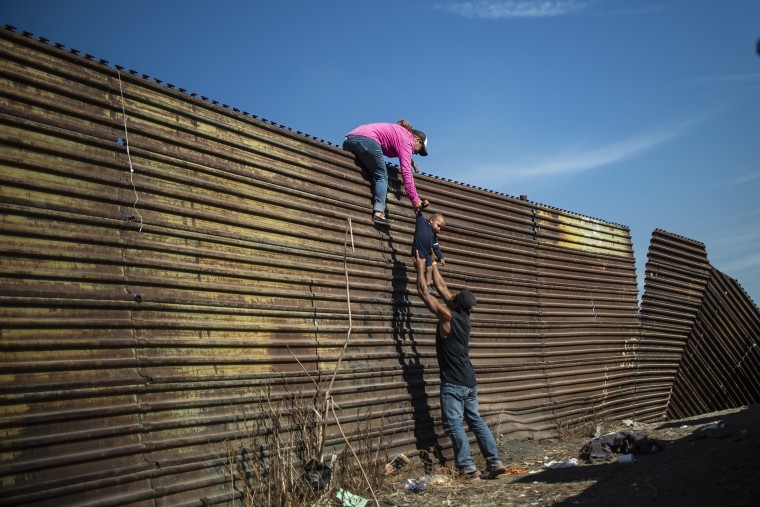The president lamented a “growing humanitarian and security crisis” in a misleading speech delivered from the Oval Office on Tuesday. But as divisive as his speech was, one point of widespread agreement was his characterization of women and children as the biggest victims in this “crisis of the soul,” even if he never acknowledged that he had anything to do with that crisis.
As the daughter of immigrants and a trained developmental psychologist, my reaction was simply to wonder where that compassion for women and children was last year when his administration was separating families, or last month when two children died in Border Patrol custody.
Broadly speaking, the Trump administration’s actions over the last two years tell a far different story — one that should cause a crisis of the soul for its architects. We have watched a seemingly endless parade of policies that would harm children: separating children from their parents, family incarceration and cruel treatment by border security.
Meanwhile, research shows children need safe, nurturing, and predictable environments, which these policies undermine at every turn. In 2018, the Trump administration’s “zero tolerance” policy separated children — including infants and toddlers — from their parents. Some remain separated to this day. Children have been incarcerated with their families in detention centers that lack necessary resources to serve them.
Many have journeyed thousands of miles to seek asylum, only to face tear gas and the threat of “lethal force.” In the last month, at least two have tragically died in U.S. custody.
At a time when children make up more than half of the world’s refugee population, the U.S. plans to further cut refugee admissions, to ever-more-historic lows.
We know these kinds of policies are particularly damaging to children: Research shows that a child’s brain forms more than one million new neural connections every second in the first years of life. Responsive interactions with adults strengthen these connections, laying the groundwork for later emotional and cognitive skills. But toxic stress — periods of intense or prolonged adversity — floods children’s brains with stress hormones that disrupt how these neural connections form.
When a parent is forcibly separated from her child at the border, or stripped of her ability to comfort him in a detention center, the child sees the world as a place of perpetual danger. Importantly, many of these children have already experienced fear, hunger, and intense stress before arriving at the border, where the Trump administration's policies are intended to deter others. Being separated from a loving and caring adult only confirms the child’s belief in a threatening and cruel world.
This kind of psychological and emotional stress leads to physical brain trauma. Studies of children in institutionalized care — a form of toxic stress to which the administration has already subjected an estimated 13,000 children, with expansion plans in the works — show that prolonged exposure to harsh conditions changes the physical structure of the brain.
As experts in medicine, psychology, and public health argue, toxic stress from events like institutionalization and being separated from their parent can also lead to long-term consequences for physical and mental health. These include trouble with emotional regulation and cognitive skills (think: poor impulse control and less effective problem solving), and negative impacts on the immune system, the cardiovascular system and metabolic systems (think: chronic illness, heart disease and diabetes).
Highlighting the extensive impact of early childhood trauma on public health, epidemiological research suggests that up to 30 percent of mental health disorders are related to childhood adversity.
If the human toll of these policies on individual children is not enough, consider the broader costs to society of inflicting trauma on hundreds of thousands.
Instead of paying lip service to the plight of women and children, a president who was serious about improving their situation would cease implementing policies that experts contend amount to violence against children. Instead of demanding billions for a border wall, that money should be invested in communities or used to ensure adequate medical care for those seeking asylum at our borders.
Trump, of course, has refused to consider any course of action.
I could argue that current polices counter to American ideals. I could argue that they undermine the country’s future by punishing some of the strongest contributors to the economy. But as a researcher and a child of immigrants, I can also cite scientific evidence to argue for what many Americans already believe: Treating all families with dignity and investing in children is the right thing to do. Period.



